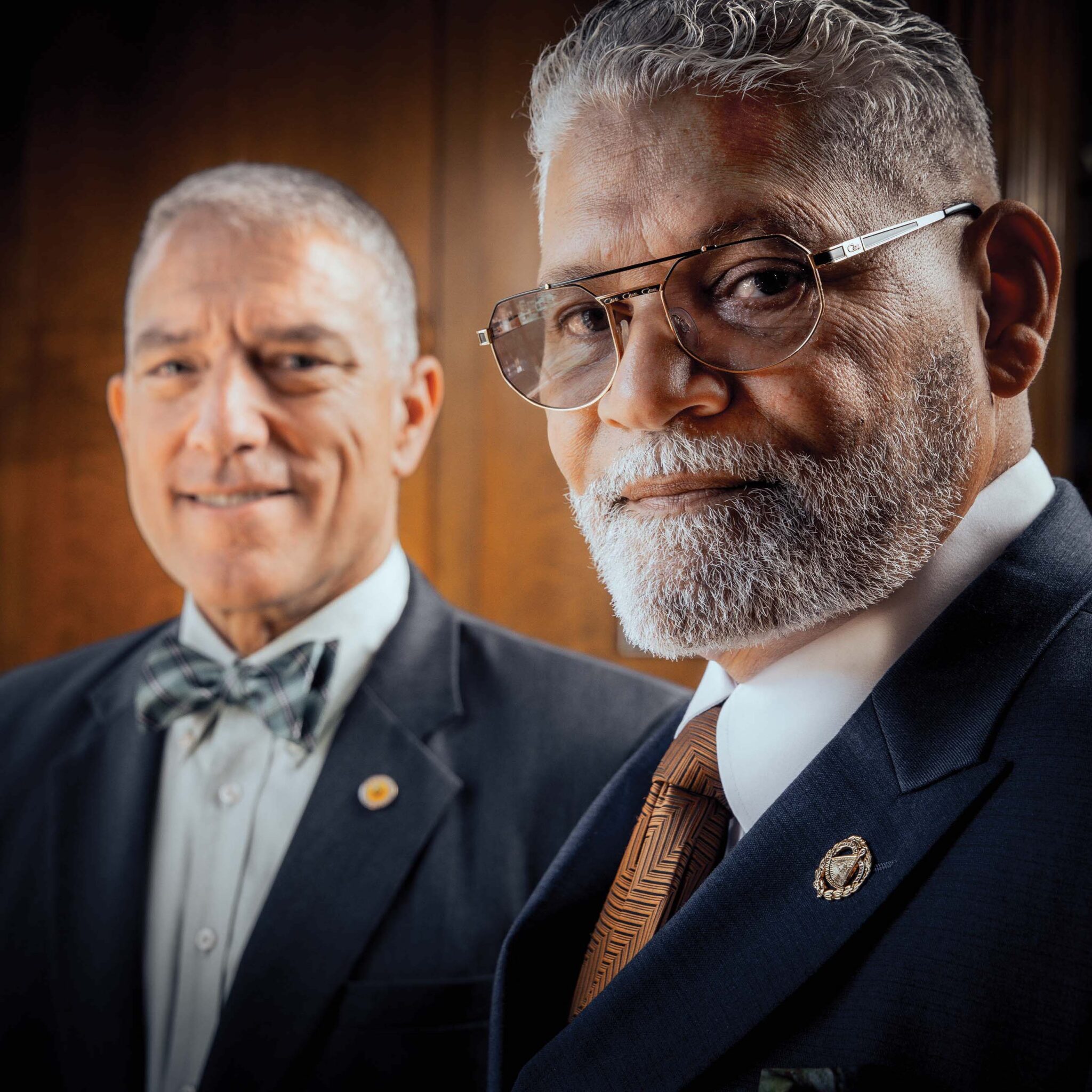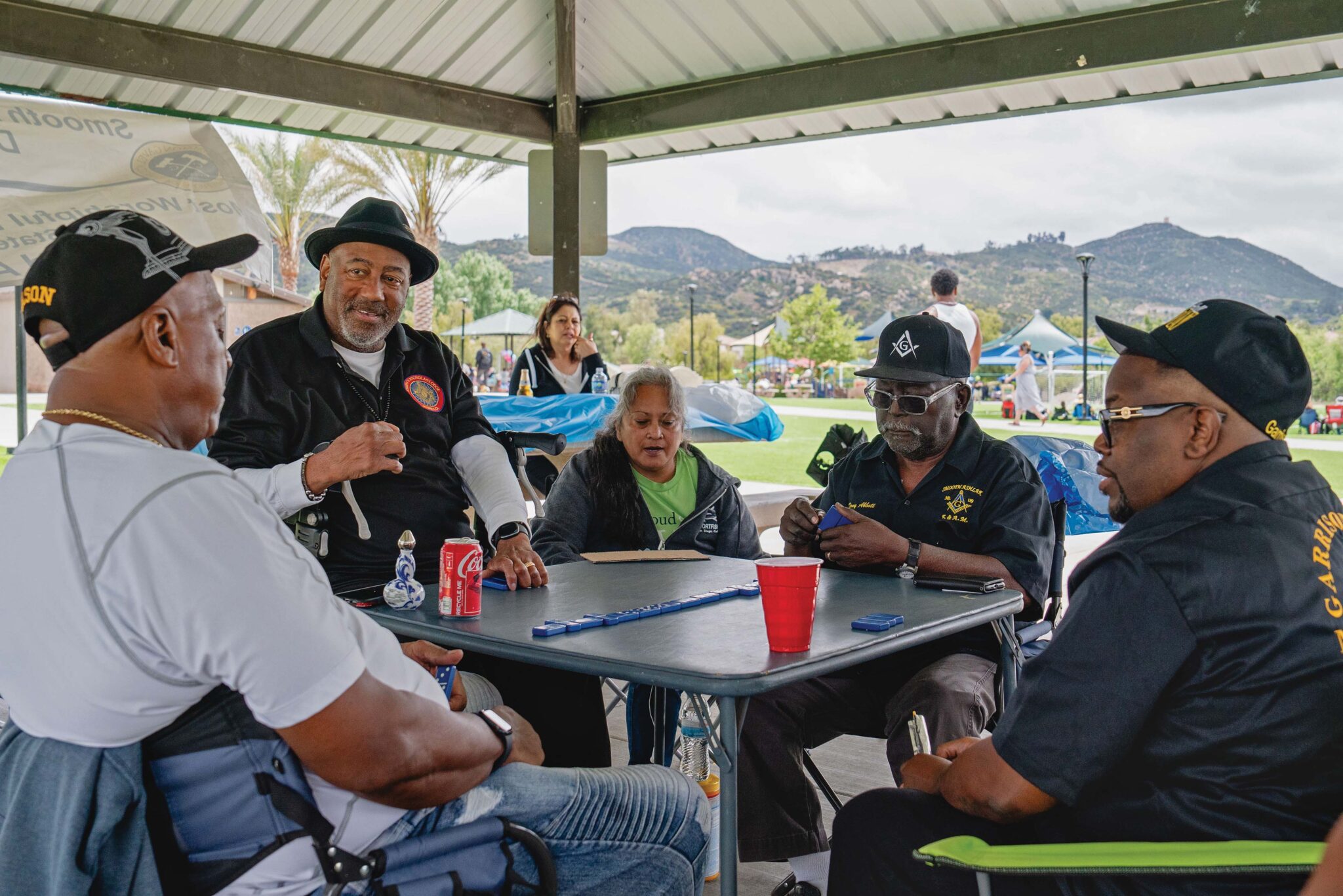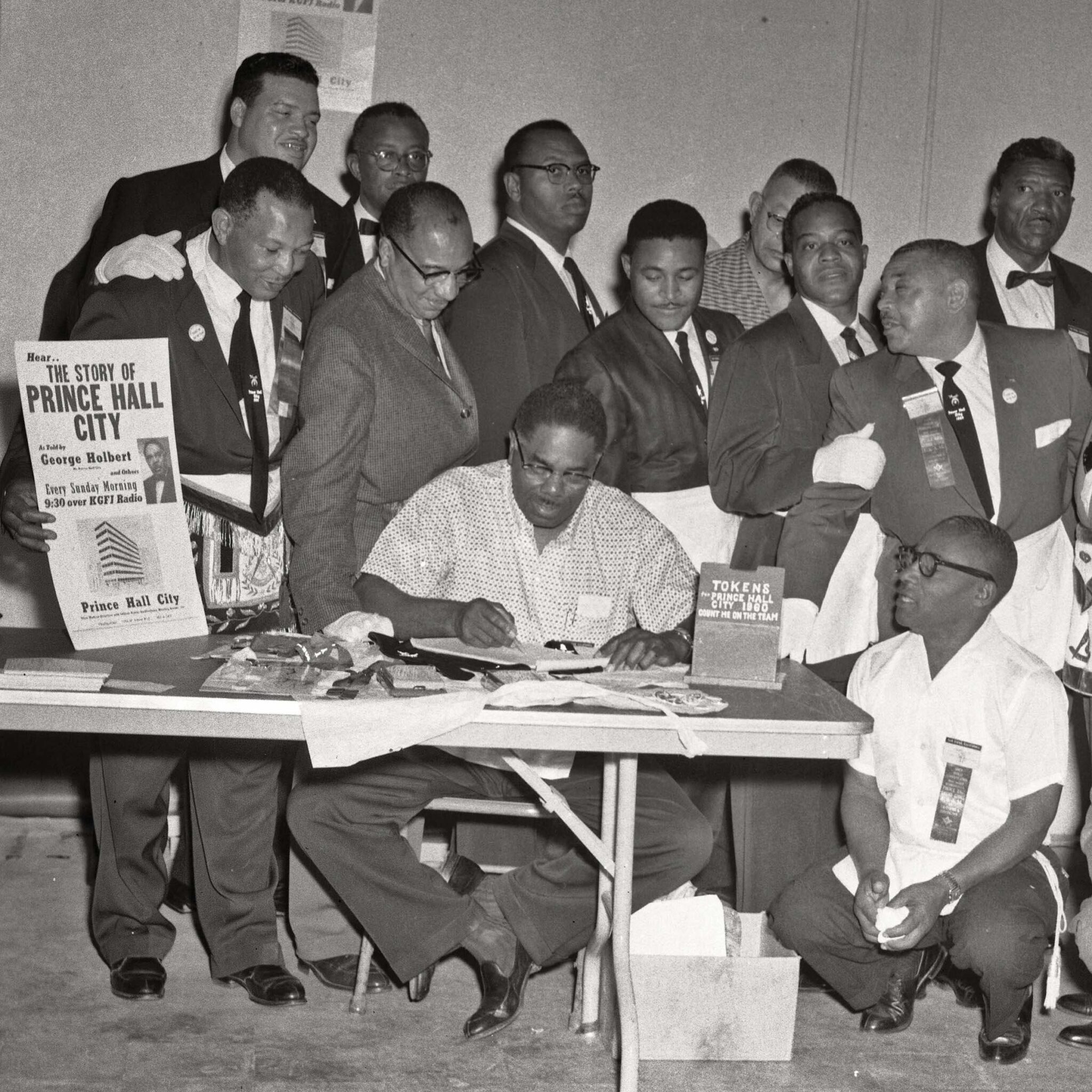
For Two Grand Masters, an Opportunity to Build Bridges Between Masons
Prince Hall Grand Master David San Juan and G. Sean Metroka of the Grand Lodge of California on deepening an important Masonic partnership.

By Tony Pierucci
Above: Aaron Washington at Fort Mason in San Francisco, where he worked for 30 years as a director with the San Franciscso Maritime Park Association.
Aaron Washington has always loved history. It’s his passion, and for more than 30 years, it was his profession, working as managing director aboard the USS Pampanito for the San Francisco Maritime Park Association, the nonprofit partner of the National Park Service.
For years, he educated the public about the World War II–era submarine turned museum docked just off Fisherman’s Wharf, sharing its history and traditions with children and adults alike. Now retired, he’s redirected that educational energy toward Prince Hall Masonry. “The historical account of Prince Hall himself is amazing, and it’s what has kept me deeply connected to the fraternity all these years,” Washington says.
Washington originally joined J.H. Green № 113 while attending Alabama State, a historically Black college in Montgomery. Living in Alabama, he grew to appreciate the role that Prince Hall Masons played in the civil rights movement, from W.E.B. DuBois to Amos T. Hall to Thurgood Marshall. Particularly in the South, Prince Hall lodges helped organize educational efforts and contributed to legal defense funds for the NAACP and other organizations, while many of the most important figures of the era, including the civil rights activists Medgar Evers and A. Philip Randolph, were Prince Hall Masons. “As I learned more about the history of the fraternity, I became even more dedicated to sharing it with future generations,” Washington says.
Years ago, during a summer vacation back in San Francisco, he ran into an old school acquaintance who noticed a Masonic emblem on his shirt. Soon, he was introduced to a member of Bayview № 64. (He’s now a member of Hannibal № 1.) “I remember thinking, There are Prince Hall Masons in San Francisco?” Washington recalls. He began researching the organization and was surprised to find a history of Prince Hall Masonry in California dating back to the 1850s.
His keen interest in passing history along also drove Washington to throw his hat into the ring for a position as a grand lodge officer. Today, he is the right worshipful senior grand warden, third in the successive line to become grand master. His motto is Leave it better than you found it. “I want to set the fraternity up to serve the needs of future generations, just like past Prince Hall Masons have done for us,” Washington says.
Washington says his dedication to learning from the lessons of history permeates his life. He certainly felt that dramatically a few years ago, when he brought his then- 13-year-old son back to Alabama, to a historically important location: the Edmund Pettus Bridge in Selma. The bridge, named after a former Confederate general and state leader in the KKK, became the site of the famous march from Selma to Montgomery taken by Martin Luther King Jr. and hundreds of civil rights activists in 1965. The march was violently dispersed by law enforcement in what became known as Bloody Sunday.
In 2022, it was once again the site of a march, but this one triumphant. More than 1,000 Prince Hall Masons from around the country joined together to walk across the bridge—a stark reminder not only of the fraternity’s historic role in the struggle for equal rights, but also of the continuing need to press forward. “Having my son by my side was huge for me,” Washington says. “It was a chance for him to not only connect with history, but with the fraternity I love.”
Read more profiles of California Prince Hall Masons here:
Gary Ransom Blazed Trails in California’s Court System
Your Honor: Judge John Weller Keeps Things on the Level
For Senior Grand Warden Aaron Washington, History’s in the Making
Photography by
Mathew Scott

Prince Hall Grand Master David San Juan and G. Sean Metroka of the Grand Lodge of California on deepening an important Masonic partnership.

Across the state, California Masons are reaching out across lodge lines.

Founded in the 1850s and still active today, the Prince Hall Grand Lodge of California is building on a proud history.